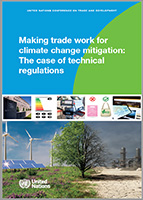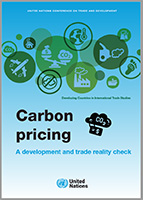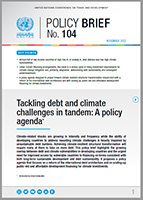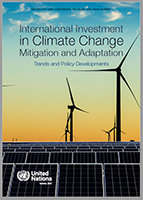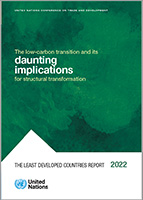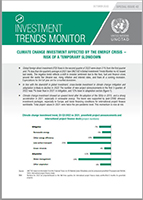
At COP27, UNCTAD will advocate for stronger multilateral cooperation to boost investment in climate mitigation and adaptation and to support developing countries in the global low-carbon transition.
UNCTAD calls on
- All countries to avoid using high energy prices as an excuse to invest in fossil fuels and delay the transition to renewable energy.
- All countries to vastly scale up investments in adapting and building resilience to worsening climate impacts.
- Developed countries to avoid policies that increase the likelihood of pollution havens emerging in developing nations.
- Developed countries to provide flexible and long-term finance and fulfill their official development assistance commitments to least developed countries.
- Developed countries to increase the transfer of technologies and skills needed for least developed countries to transition towards low-carbon economies.
- Developing countries to combine their efforts for a low-carbon transition and boost investments in cleaner technologies and sectors.
UNCTAD’s Global Investment Trends Monitor shows global investment to tackle climate change is falling this year. Between January and September 2022, climate mitigation and adaptation sectors had 7% and 12% fewer new projects announced, respectively, starkly reversing last year’s strong growth.
Meanwhile, a dangerous doubling down on fossil fuels amid the global energy crisis threatens to further delay the low-carbon transition needed to keep global heating under 1.5°C.
Global efforts towards a low-carbon future must consider countries’ different development needs and capacities to fight climate change. Otherwise, UNCTAD's Least Developed Countries Report warns, many developing countries will be left behind and continue to pay an unfair price for the climate emergency.
For example, the least developed countries contribute just 4% of world greenhouse gas emissions but have suffered 69% of deaths caused by climate-related disasters.
UNCTAD’s Trade and Development Report 2022 also shows that stronger coordination of developing countries’ efforts for a low-carbon transition could generate $1.6 trillion annually in additional climate-focused investment and help cut global CO2 emissions below 30 billion tons by 2030.



